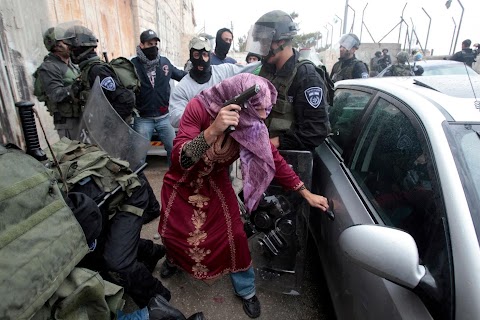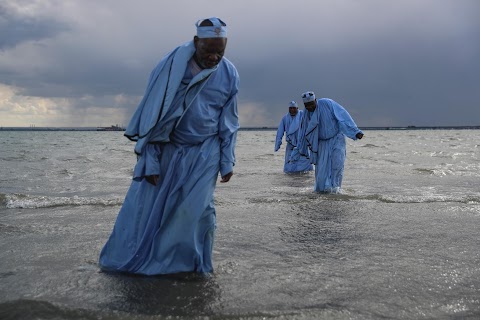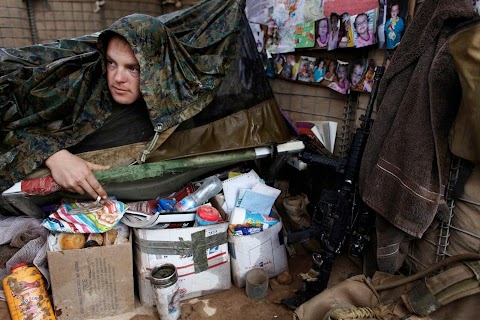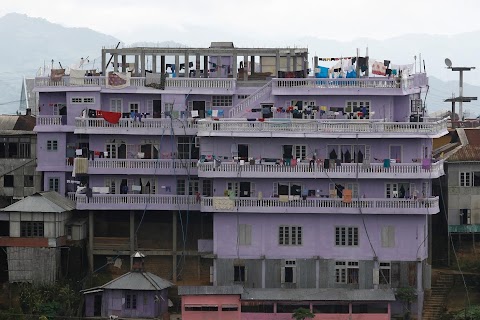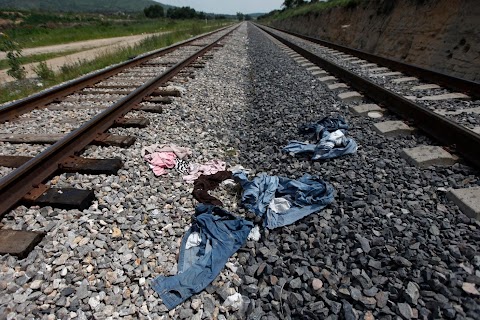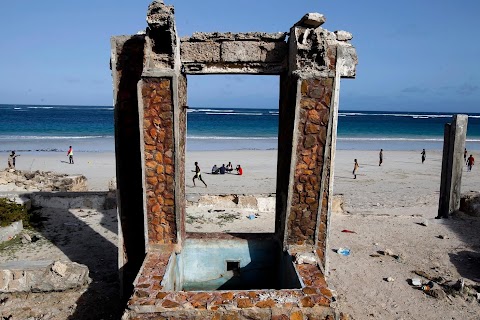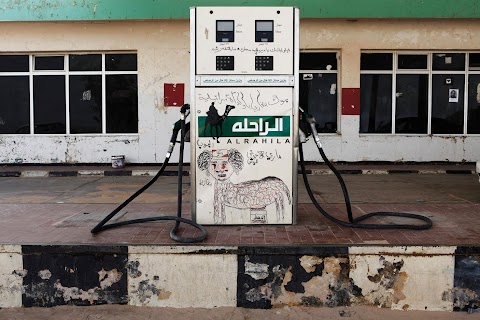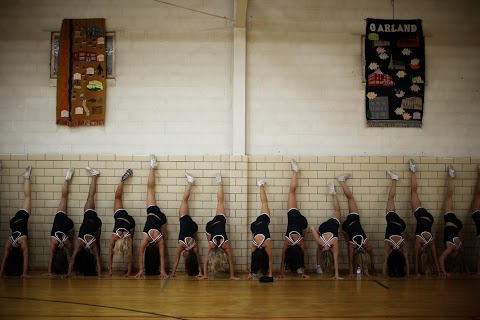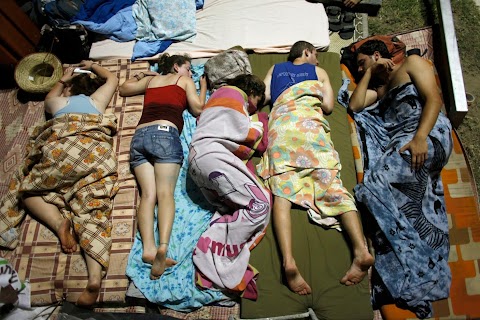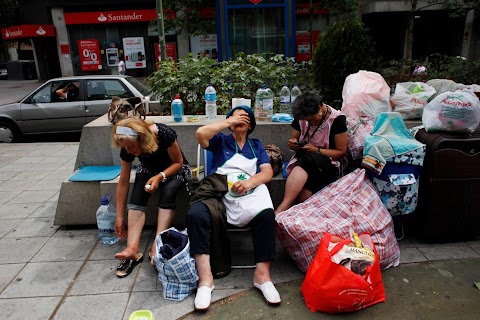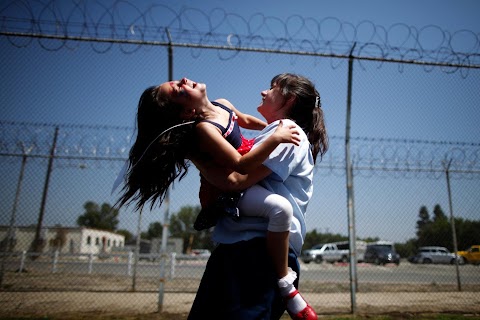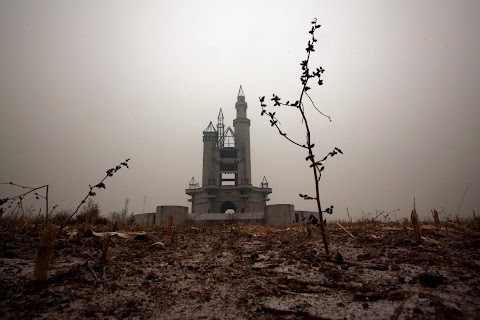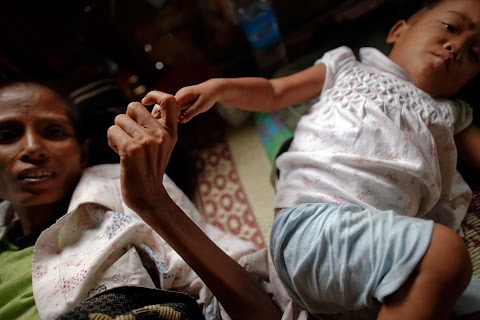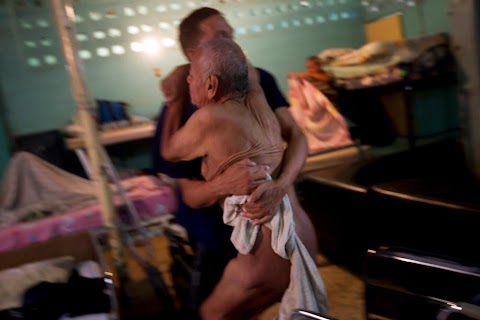
Hope for homeless addicts
 Carlos Garcia Rawlins
Carlos Garcia Rawlins
Thirty-six-year-old Danny Martinez, a patient in drug rehabilitation, helps to move an old man from his wheelchair to his bed, after bathing him at the Nosotros Unidos rehab centre for drug and alcohol addicts. In this humble setting, some 250 men – from the city's youth to the elderly and the infirm – find hope every day living side by side. The centre has helped more than 20,000 vulnerable people over the last 15 years.
Slideshow

A homeless drug addict smokes while lying next to a dumpster after refusing to go to the Nosotros Unidos rehabilitation centre during a special rescue campaign in Caracas.

Daniel Velasquez, a former drug addict, tries to convince a homeless man sleeping in a square to go to the Nosotros Unidos rehabilitation centre.

Former drug addicts from Nosotros Unidos carry a homeless alcoholic to their car.

An alcoholic cries as he receives a haircut on his first day in rehabilitation in the turbulent slum of Coche in Caracas, one of the most violent and chaotic cities in the world.

An alcoholic and drug addict sleeps on a mat on the floor for his first night in rehab.

A homeless man sits next to his personal belongings.

Jose Oviedo (left), 33, a former gang member and drug addict, serves food to fellow participants in drug and alcohol rehabilitation.

Danny Martinez, a patient in drug rehabilitation, helps to dress an elderly homeless man after bathing him.

Danny Martinez helps to move an old man from a wheelchair to his bed after washing him.

A patient at the rehabilitation centre organises his belongings in a locker.

Patients pray at church during a Sunday service.

Douglas Paredes, a patient in drug rehabilitation, shows his scars from gunshot wounds.

Patients in drug and alcohol rehabilitation attend group therapy. The centre is funded by a Christian evangelical church, and has been a model for state institutions with the same goals.

Juan Castro is helped into bed by a fellow homeless man.

Homeless people and rehab patients rest.

Jhonny Guevara, 45, a drug addict, sleeps on a mat on the floor on his first night in the centre.

Patients in drug and alcohol rehab pray during group therapy.

Rehab patient Rolando Garcia embraces a fellow recovering addict during a group therapy session.
"The ways they find to help each other provoked in me everything from surprise to astonishment"
The day William decided to change his life was the day he woke up on the street soaked in gasoline and engulfed in flames.
I met him at the Nosotros Unidos (“Us United”) Christian shelter in Caracas a year later. William, 39, doesn’t remember how many years he lived on the streets, stealing to feed his drug habit. He also doesn’t know who set him on fire. But he does remember the year he spent in a hospital recovering from the burns.
Surrounded by one of the biggest slums in one of the world’s most violent cities, the walls of Nosotros Unidos have, over the past 15 years, sheltered more than 20,000 people in search of a way out of the self-destructive cycle of drugs. With high ceilings and little light, and rows of bunk beds occupied by people whose worldly possessions fit into a small locker, the Protestant-church-run centre offers free rehabilitation to people with problems of drug abuse and deprivation.
The main therapy available to those who enter the program is religion through prayer.
Douglas is on his third and longest stay in the centre. Among the several violent incidents during his life on the street was the time someone shot him with a homemade shotgun that used screws and nails as ammunition. His abdomen still retains the deep gouges from the blast. Inside the shelter it’s impossible for him to hide his joy when his mother and 15-year-old daughter come to visit him. He admits they are the only motivation he has to find a way out of the world in which he was immersed.
The rehabilitation centre enforces a routine for all the patients. Every afternoon there is a group therapy session in which they read the Bible for over an hour. Three mornings a week they rise at 4 a.m., fast for two hours, and pray. On Wednesdays and Sundays they put on their best clothes and attend a church service. At mealtimes they march into the dining room according to their room number, and stand in rows to say grace before filing past the pots to receive their portions. They eat in near silence, seated at long tables.
The head of the kitchen is 33-year-old Jose. Until four months ago Jose was a member of a criminal gang. Today, he is responsible for all the food at the shelter, using very few utensils apart from a set of giant pots that show the wear and tear of heavy use.
The self-discipline with which these 250 men, aged 18-80 and from difficult backgrounds, behaved, impressed me from the moment I began spending time with them. The participants themselves provide cooking, hygiene, security, and guidance for the new arrivals, as well as assistance for the oldest and most helpless.
The ways they find to help each other provoked everything from surprise to astonishment in me. One morning I found Jesus proudly admiring his teeth in a mirror, showing everyone one incisor in particular that was sitting in his mouth where there had only been a space the day before. One of his companions had hand carved the tooth from a beef bone salvaged from the previous day’s lunch, especially for him.
I couldn’t think of a better gift.
